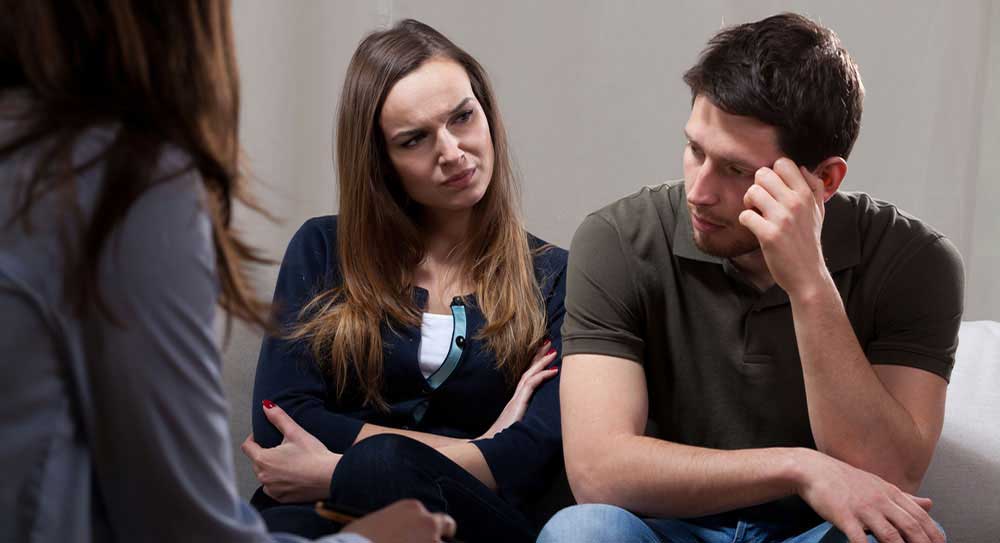
Christian Co-Dependency Treatment Program
Co-dependency treatment program for Christians can be a savior of relationships. It is said that most of us are at least a little codependent, and that may be true. There are times when people occasionally go overboard in their attempts to help others, and times when they get a little too controlling. These occasional bouts of codependent behavior aren’t too troublesome, however, for some people, co-dependency is a real problem that requires help. This is because the codependent behavior has interfered with having a normal life, and interferes with the ability to take care of oneself. If you are struggling with this, there is help.
Dual Diagnosis in its Many Forms
Most people think of codependency in terms of relationships, because that is how the condition most commonly expresses itself. People who have codependency issues often find themselves in relationships with those who have addictions or other issues. Relationships are also often one-sided, with the codependent person putting in most of the effort, with little reward. Relationships may be abusive, physically, emotionally or sexually.
If you are in a relationship and you are codependent, then a majority of your energy and focus is on the other person. You spend all of your time trying to “help” the other person, trying to reach out to them and get your needs met, often to no avail. There’s a good chance you are constantly stressed, anxious, exhausted and resentful. You may live in constant fear of abandonment. You may also feel that if the other person would simply do what you want them to do (quit using, quit gambling, stay home at night, etc.) then everything would be fine. That isn’t true, however. You see, the issue with codependency isn’t with the other person, it’s with you.
Symptoms Of Co-dependency
There are a variety of symptoms and characteristics that codependent people display. Your symptoms may vary, but perhaps you will recognize at least a few on this list. While many of them are tied to the relationship you may be in, it’s easy to see that many of them have nothing to do with your relationship at all.
- Difficulty expressing feelings, identifying feelings or asking for what you need
- Minimize your feelings
- Difficulty or inability to make decisions
- Value the opinions of others over your own
- Constantly criticizing and judging yourself
- Can’t take a compliment
- Feel that showing emotion is a sign of weakness
- Feel that others can’t take care of themselves
- Feeling that things would “fall apart” without you
- Feel resentful when others don’t take your advice or suggestions
- Actively seek approval of others
- Can’t ask for what you want
- Overly generous to others, and often resentful of them for “taking” what you give
- Mask pain with sarcasm and humor
- Won’t admit mistakes
- Typically attracted to those who are unavailable
- Continue to remain in unsafe or abusive situations out of “loyalty”
- Hypervigilance
- Push people away, avoid intimacy
- Need to feel needed
These are a few of the traits of codependency. The inability to directly ask for what you need and want can lead to manipulative behavior. You may find that you are constantly battling to “save” your partner and you likely feel that no one appreciates your help or your efforts and that many of your relationships are one-sided.
People who struggle with codependency often don’t take good care of themselves. You may not eat or sleep well, and you may not do necessary things like go to the dentist or the doctor. While codependency often shows itself most in romantic relationships, it also affects other relationships, too, such as those with your parents, children, siblings, and friends.
Co-dependency treatment program- who benefits
Anyone can, really. However adult children of alcoholics and addicts or those who experienced abandonment or abuse are more likely to. Early childhood experiences seem to play a big part, especially if these issues have never been addressed.
Codependency effectively sucks the joy out of your life. When you are in the midst of it, you are unable to experience true freedom, or to build a life of your choosing. It affects your mental health, physical health, and your well-being. You are living for others and trying to get needs met in a way that will never work. The satisfying, loving relationships you crave will never happen unless you are able to recover.
Getting Treatment For Codependency
At its worst, codependency is a life-threatening condition. This is because people who are codependent may put themselves in dangerous situations, such as physically abusive relationships. You may do things that are unsafe in your attempts to help or please your partner. Even if the consequences aren’t that extreme, you are robbing yourself of a happy, peaceful life. Getting help for codependency in a Christian, faith-based program is a step toward freedom, happiness, and peace of mind. It doesn’t mean that you don’t care for others, or that you are abandoning anyone. It means that finally, you are not abandoning yourself.


